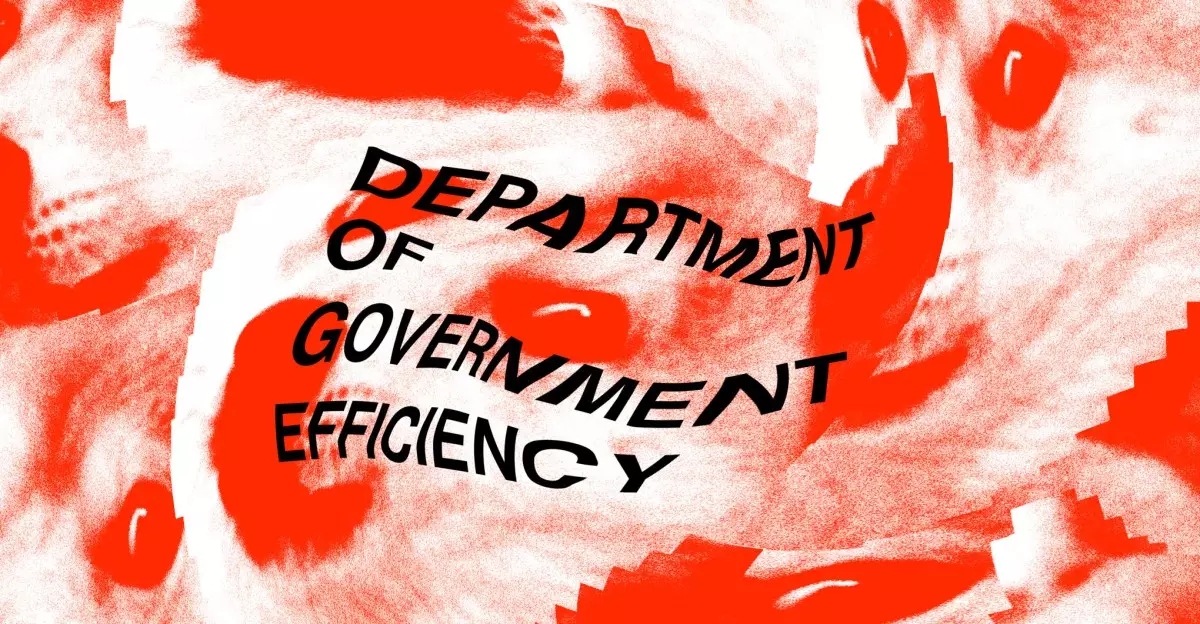In an era where data drives decision-making, the Internal Revenue Service (IRS) is embarking on an ambitious journey to create a so-called “mega API” designed to facilitate seamless access to tax data via third-party software. Reported by Wired, this initiative, started by Elon Musk’s Department of Government Efficiency (DOGE), aims to streamline IRS data utilization by migrating it to a cloud-based infrastructure. This monumental shift is more than just an overhaul of existing systems; it illustrates a bold vision of modernizing how government agencies interact with data, albeit not without its fair share of controversy and skepticism.
The Hackathon Dilemma
At the heart of this initiative lies a hackathon scheduled for next week, where IRS engineers will collaborate intensively for 30 days, trying to design and implement this mega API. While the creativity and innovation inherent in such events can lead to remarkable breakthroughs, the rigid timeline set by DOGE raises eyebrows. Many within the IRS internally recognize the timeline as unrealistic — with seasoned employees expressing concerns that rushing the project would undermine the integrity of their systems. It’s a classic case where ambition meets practicality, igniting debates on whether such rapid implementation could actually result in significant progress or merely drive the team toward disaster.
Risky Collaborations and Ethical Implications
The choice to involve well-known third-party vendors, such as Palantir, further complicates the endeavor. While these corporations offer impressive technological capabilities, they also bear reputations associated with extensive data aggregation and government surveillance. The potential partnership with such entities brings forth critical ethical questions regarding privacy and the responsible handling of sensitive taxpayer data. By positioning IRS data within a cloud framework, the initiative may inadvertently expose citizens’ information to threats of misuse, raising alarms about transparency and accountability in government.
The Tension of Experience and Expertise
Critics are echoing a familiar concern: does the current leadership of DOGE have the requisite experience to navigate the complexities of IRS data? Reports highlight that young leaders, including 25-year-old Gavin Kliger and health-tech CEO Sam Corcos, are spearheading the initiative without established expertise in tax regulation or governmental operations. Their inexperience could be detrimental, further fuelling the skepticism of those who argue that understanding and schematizing IRS data is a multi-year endeavor, requiring not just technical skill but comprehensive knowledge within the specific domain of taxes.
Political Influence and Broader Implications
The political backdrop adds yet another layer of complexity to the initiative. The push for an API to help share IRS data across various governmental functions has raised concerns regarding governmental overreach and the potential exploitation of that data for political gain, as suggested in discussions about using IRS information to bolster immigration policies. With government entities often scrutinized over their transparency, this new direction becomes a sensitive matter that may further fracture trust between citizens and their government.
In a world increasingly driven by data, the development of the IRS’s mega API reflects both the promise and peril of technological advancement. It is imperative that any advancements made in this easily manipulable space prioritize ethics and citizen security above all, ensuring that innovation does not come at the cost of integrity.

